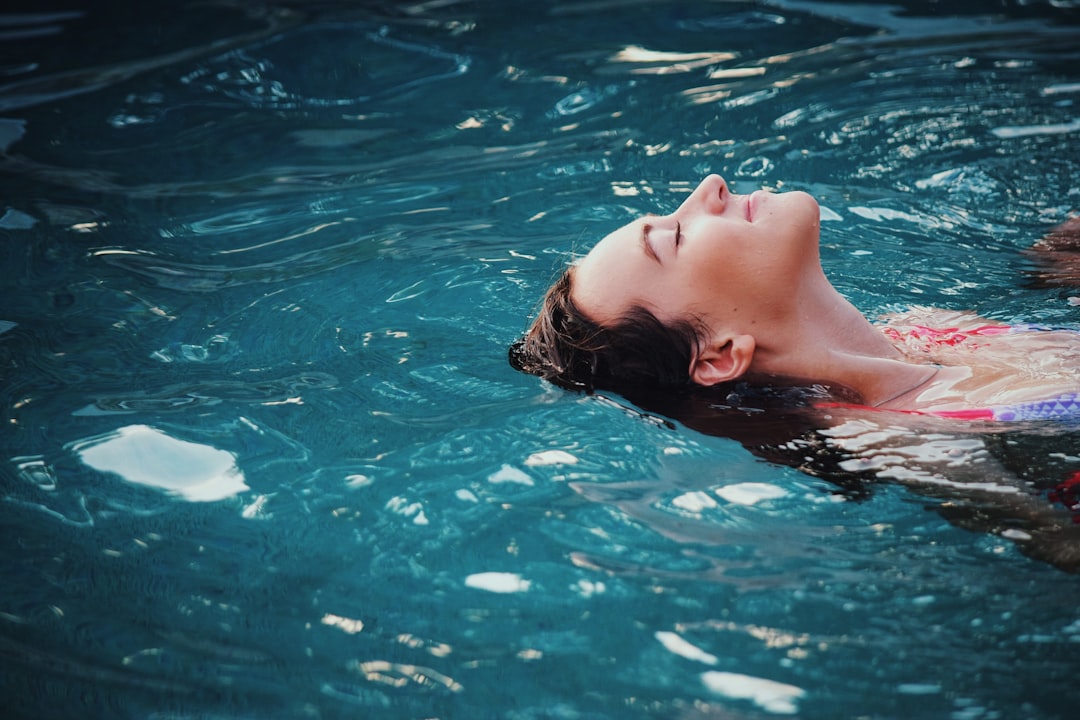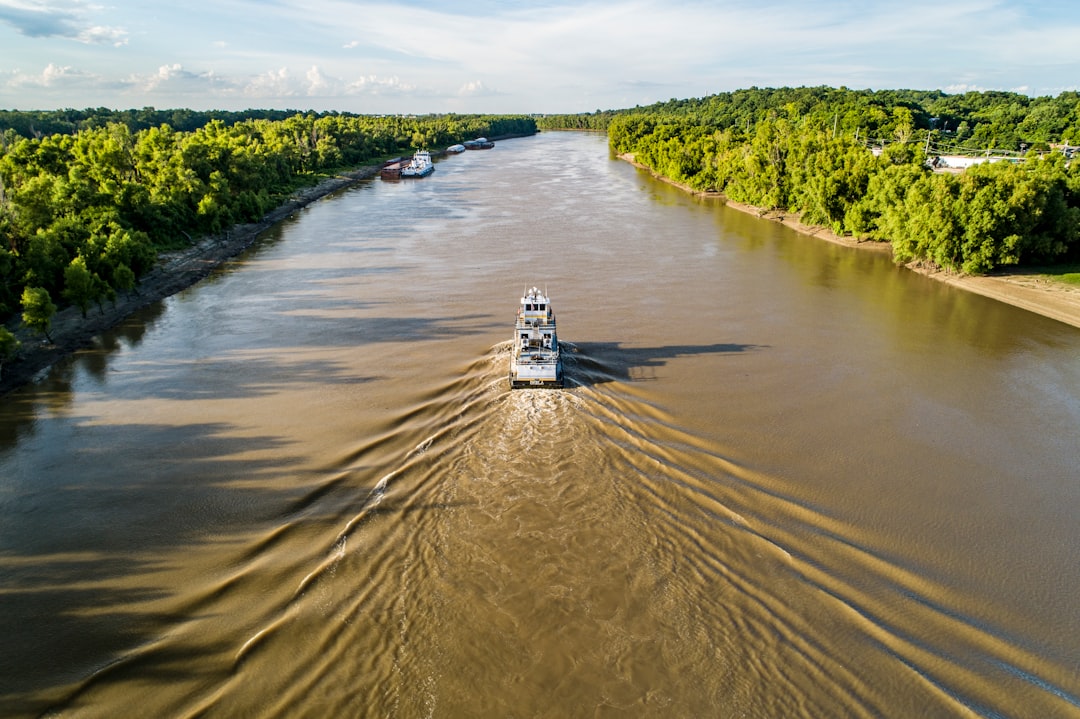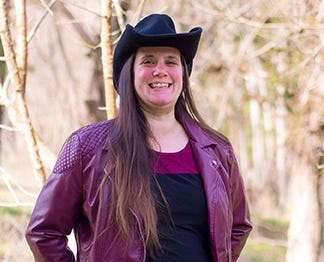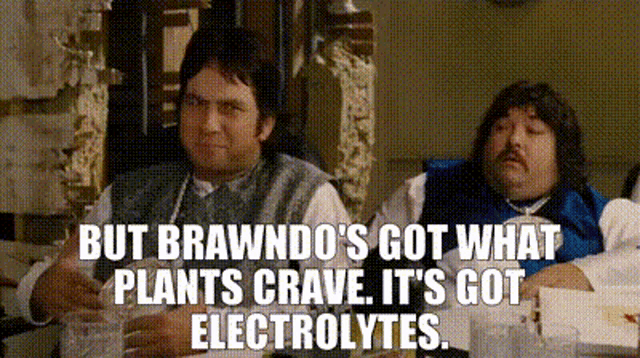Summer Survival Council: How to Feel Cool without AC
Surviving the heat when AC isn't an option.
We’re seeing heat advisories all over the country, and across the pond, the United Kingdom is so hot that runways are melting and London is burning. Meanwhile, over 1,000 have died from the heat in Portugal and Spain.
I’ve been fielding questions on beating the heat, including questions on whether things like cooling blankets work. So I asked our Summer Survival Council for tips on how to feel cool without AC. This week’s answers emphasize quality over quantity. Be sure to read through to the end to catch Tom Rader’s responses. He teaches wilderness medicine in the desert, so he knows this topic inside and out.
You can join our Discord server to pitch your own questions to the council. Catch up with our previous entries in the Summer Survival Council series:
Tackle Food Shortages and Inflation with Unprepared's Summer Survival Council
Confront the Fuel Crisis with Unprepared's Summer Survival Council
How the Unprepared Survival Council Prepares for Power Outages
Summer Survival Council: Balancing Finances and Preparedness
Ashley Colby
Ashley Colby is an environmental sociologist who lives with her family on a homestead in Colonia, Uruguay where she runs study abroad programs for Rizoma Field School. She also organizes online classes for adults like Homesteading 101 and Homeschooling 101 via her Rizoma School Gumroad. Ashley co-founded Doomer Optimism, a podcast and Substack that explores topics like homesteading, regeneration work, and preparedness. You can follow her on Twitter @rizomaschool.
Last summer we had temperatures soar over 115 degrees Fahrenheit. I went back and forth on Twitter with a climate scientist who said there was nothing we could do in those temperatures to cool off. What an absurd suggestion! What was I supposed to do with my day, go lay in the direct sunlight and burn up? Of course, we have the ability to manage despite extremes, and we should do our best with the resources we have.
In this case, we shut all the windows, and curtains, and we even made shutters for the window that receives the most sunlight. We used air conditioning with the doors closed in the bedrooms, so as to not tax the system for the whole house. If we didn't have electricity we would have only run the generator for the first few hours of the night in the bedrooms and we would have likely spent the second half of the night with the windows open as the temperature drops significantly overnight for us. We spent a lot of the day outdoors under the shade of a large walnut tree, spending time cooling each other off with the hose and in the pool to take advantage of evaporative cooling.

Joseph—Homestead Padre
Joseph has been homesteading for over a decade and specializes in small-space homesteading and intensive gardening systems. He is married with three children, one grown, and is co-owner of The Smith Homestead with his wife Melody. He also owns a cottage food bakery out of his home, servicing his local community with homemade and artesian breads.
I’m afraid I won’t be much help to anyone this week.
There is no staying cool without electricity where I live. The Gulf of Mexico is bath water right now: about 97-90 degrees Fahrenheit and the rivers aren't much cooler. And the rivers are full of gators. The humidity is so high cooling through evaporation isn't really an option either.

Long story short: On the gulf coast of Mississippi it's near impossible to stay cool without electricity.
Even the old timers that lived here in their youth before AC was a thing have told me that you just stick to the shade and ride the heat out till sunset. I spent last summer with no air conditioning. It was hot and it was miserable but I learned a valuable lesson. That lesson was: if you're smart about your workload and your water intake and respect the heat, it is livable and survivable, just like the folks that came before us knew.
Nicole Sauce
Nicole Sauce of LivingFreeinTennessee.com has run a homestead for a decade and a half, roasts great coffee at HollerRoast.com, and runs workshops on self-reliance and homesteading (SelfRelianceFestival.com). Her book Cook With What You Have helps folks learn to do just that, and she coaches people through development of a step-wise plan for building an independent, stable lifestyle including income generation, choosing the city or the country, preparedness, and lifestyle balance. She is also hosting a Swale Workshop in Camden, TN on July 30 and 31.
There are other priorities in my budget than single-purpose cooling gadgets like refrigerated blankets or ice vests (which require power to get cold to begin with) and there are many ways to cool off without buying a specialized thing.
Ideas for staying cool when the power is out and you are used to having air-conditioning:
Wet a towel and place it over you in a breezy place (breezey from either wind or a battery-operated fan). The evaporative fan will help you.
Stay hydrated, use electrolytes.
Do outside work early or late in the day and stay out if the sun in the mid part of the day.
If you have frozen water in your freezer and a way to keep the freezer going, using ice water on your feet and hands helps cool the body.
The creek/stock tank/pool/lake or sprinkler if you are on city water.
Turn on the AC in your car and cool off there if your car has it.
Ideas for staying cool if you are in an off-grid home:
Design your home to not get direct sun on the south or west wall during summer so that it stays cool.
Likewise, a well-insulated and ventilated home will be cooler.
Open windows at night when things are cooler and keep your home closed up during the day to keep the cool inside.
Cook and do other heat-generating things outside.
You will acclimate to warmer temperatures if you are not able to be inside air-conditioning on the regular.
Wear lightweight, light-colored clothing that covers your skin in the sun
Gadgetry I find useful for cooling at summer outdoor events:
Tom Rader
Tom Rader was the Managing Editor for The Prepared and former Editor in Chief of The Firearm Blog. He travels all over the country in a self-sufficient overland vehicle teaching wilderness medicine, tactical things, off-road recovery and driving, and other outdoor-related subjects. You can follow him on Twitter or Instagram.
Acclimatization. We have unfortunately become “soft.” Air conditioning and other climate-control strategies are a fairly new phenomenon that has allowed us to push into areas that we are not prepared for. And our modern Western society has built itself around use of those climate control strategies—giving us cushy office jobs and transportation in special climate-controlled bubbles.
In wilderness medicine, we teach a section on thermoregulation. The basic concept is that it is all about energy transfer and managing that energy transfer to keep a person’s temperature in balance. We need to manage radiation, convection, evaporation, and conduction.
Editor’s Note: Tom teaches wilderness medicine in the desert, so he knows what he’s talking about.
Humans generate heat through movement. We cool by radiating excess heat—our circulatory system opens capillary beds near our surface. Our pores open up and allow moisture to escape onto the outer surface (commonly called “sweat”). That moisture absorbs the radiating heat, and convection and evaporation allow that heat to be spirited away.
Practically, that means we need to be hydrated enough to have moisture that can be pushed out. We need to make sure that heated moisture can escape the surface of the skin. That means wearing breathable layers that allow the moisture time to absorb heat and also allow a slight breeze to convect that moisture and accelerate evaporation. It also means we need to protect the skin itself from damage—like sunburn—as that will limit the body's ability to send blood to the surface and transfer moisture. If we are really hot, we can lay on a cool tile floor or lean up against a rock in the shade to conduct some of that heat energy to a large heat sink.
Since a major way we cool is through fluid loss, we also need to be concerned with electrolytes, especially if you are not used to being in the heat. Your body will naturally dump salts in the sweat, so you need to make sure you are eating a normal diet as well as staying hydrated. Over time, as you get more used to heat, your body will learn to conserve the salts, though you should still maintain nutrition.
If you are performing some kind of physical labor, plan to do it in the cooler parts of the day, or at night. Once you start down the path of heat injury, it can take a while to recover, and the only way you can recover is to get out of the heat. If you start noticing mental status changes (like lethargy) or nausea while in the heat, seek shade immediately and catch up on hydration.
Pay attention to your urine output—it should be a light straw color (not clear and not dark like an IPA). If it is darker than a light straw, you need to aggressively hydrate (and eat something). It may take a few hours to correct so it is better to stay up on hydration than fix it after it is a problem.
That said, you can work on hardening your body by exposing to smaller amounts of heat gradually. Change your house thermostat to be a couple of degrees higher. When you are used to that, increase it a little more, and so on. When you are driving in your car, try driving with the windows down rather than the AC. You will find your tolerance increases pretty rapidly. This is obviously not a quick fix, but neither is “prepping…”
Dave
Dave is a former Navy SEAL (but not the kind who thinks that makes him cool) and aspiring homesteader. He and his family live in an old schoolhouse in the Pacific Northwest where they garden, care for a small orchard, and raise chickens. Say hi to Dave on Twitter, where he is @aspiringpeasant.
My wife’s aunt and uncle died two years ago in Phoenix during a heat wave. She was dealing with dementia. He fell and hit his head. Nobody turned on the AC, and both of them were dead before the next family member came by to check on them.
Not having natural/default ways to deal with the heat — relying on an external power grid to maintain life-support systems — that’s a fragile way to live.
When we lived in San Diego, I had a small orchard on a terraced canyon and one of the terraces was absolutely dominated by bananas (to the detriment of the orange and cherimoya trees). We didn’t have AC, so when the breeze off the canyon stopped (around 95°F) we would take some chairs down to the banana grove and spend the hottest part of the hottest days there. It was easily 10°F cooler and felt 20°F because of the moisture content under the canopy.
I will never forget the stark contrast between the air under the bananas and the temperature on the sidewalk out front. Evaporative cooling (especially associated with plants) is magical.
In the short term, you can try hanging wet sheets in the house or mopping the floor with clean water. And you can get airflow by experimenting with cross-ventilation or thermal differentials (think basement temp vs. attic temp) to find more comfort.
These things will help, but not nearly as much as the longer-term investments and lifestyle changes.
Plant trees, plant bushes, and plant them close to your house. Cover up/tear out concrete where you can and replace it with green life.
Modify your house to take advantage of your climate — do not assume that electricity will always be there to save you because it will not. That might mean more thermal mass, extra insulation, better ventilation, or a tube buried in the backyard that cools the air coming in while the hot air vents from the attic. It might mean misters under a grape-covered pergola out back.
Healthy soil with lots of moisture content (and real-live plants) can also play a major role in building more comfortable microclimates. And it’s great to plant trees in.
If you have the space, digging a pond might be a worthy project (deep is good when it comes to thermal stability). Plant trees around that pond.
Plant fast-growing trees along any roads/sidewalks to put people and hardscaping in the shade.
If possible, it might be worth considering the heat-of-the-afternoon siesta in the shade. Lots of Americans would look at that and say “that’s lazy” but it’s really not — it’s instinctual and practical. You can make up whatever time you “lost” that evening when it’s cooler out anyhow. Naps are great under trees, by the way.
Oh, and I’m not sure I mentioned this, but planting trees is always a good response to pretty much anything. It’s just a doubly-good idea for this particular question.
Travis J I Corcoran
Travis J I Corcoran is a software engineer and an author. He lives on a 56-acre farm in New Hampshire with his wife, dogs, livestock, and a variety of lathes and milling machines. He raises and butchers his own pigs, sheep, and poultry, and grows a variety of fruits and vegetables in his gardens, orchards, and vineyards. His two-volume homesteading magnum opus is available on Amazon: Escape the City Volume 1 and Escape the City Volume 2. …as are his two award-winning science fiction novels: The Powers of the Earth and Causes of Separation.
Heat — and heat injuries — are much on my mind right now, because two weeks ago I suffered heat exhaustion for the first time in my life.
I'd always assumed that “heat exhaustion” was akin to dehydration — you got too hot and too dry, so go inside, drink some cold water, rest for 30 minutes, and then get back to your chores.
…but it turned out to be a serious condition. Heat exhaustion (I HAVE NOW LEARNED) is characterized by pouring sweat, dizziness, mental confusion, and nausea.
When it hit me, at first I thought (as per the above) that I could just cool down indoors for a bit and then get back to it …but it turned out to be quite an ordeal, involving sleeping for about 48 hours interrupted every two hours by waking up to vomit, or at least dry heave after the first half dozen bouts. It was like a bad flu… combined with extreme dizziness (so getting from the bed to the sink required a lurching drunken sailor's walk).
During the acute phase (about three days) I couldn't eat anything, and could only hold down beverages if I sipped them slowly. I was torn between being very thirsty and wanting to guzzle water or Pedialyte, and learning that if I did, it would all come back up in 10 minutes.
Small sips of Pedialyte and Gatorade brand electrolyte drink (not the same as regular Gatorade) did the trick.
After the acute phase passed, there was a week and a half period of occasional bouts of brain fog and low executive function (only now wrapping up). All of this was pretty scary, especially because I didn't feel that I had been pushing myself much harder than usual.
Having learned a few things the hard way about heat exhaustion, I tried to learn a few more things about the topic the easy way: by Googling and talking with friends online.
Google told me that heat exhaustion is often triggered by cumulative insults. In my case, I'd been pushing myself very hard for two weeks, and every night I was coming in, telling my wife “Wow, I really destroyed myself today — I think I'll just lay down on the couch (or the floor) at 8 PM because I'm too tired to sit up.” This was, in retrospect, obviously my body telling me that I was pushing further and further into my reserves. I was an idiot for not listening.
One thing I learned from vet friends who had served in the Middle East is that once you suffer one heat injury, it's easier to suffer additional ones.
Another thing I learned from Google, vets, landscaping, and athlete friends is that a good way to defend against heat injuries is to keep your electrolytes up. I cataloged recommendations and ended up using a mix of a few things:
1 quart cold water
1/2 teaspoon Morton Light salt (it has both sodium and potassium)
A “post workout” athletic powder with BCAAs (branch chain amino acids)
An electrolyte powder
Right now, a few weeks later, I'm about 99% recovered (I still get small bouts of brain fog from time to time), and apparently, my recovery time is fairly typical… and some folks have effects for months and months!
So, my advice:
Listen to your body. When you find yourself saying things like “that labor destroyed me” day after day — STOP!
Don't just hydrate with water — make sure you're getting electrolytes too.
If you suffer real symptoms, get into a cool spot IMMEDIATELY, and drop your body temperature with cold showers.
Once you've suffered one heat injury, slow down, heal, and don't push yourself into a second one.





